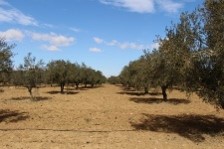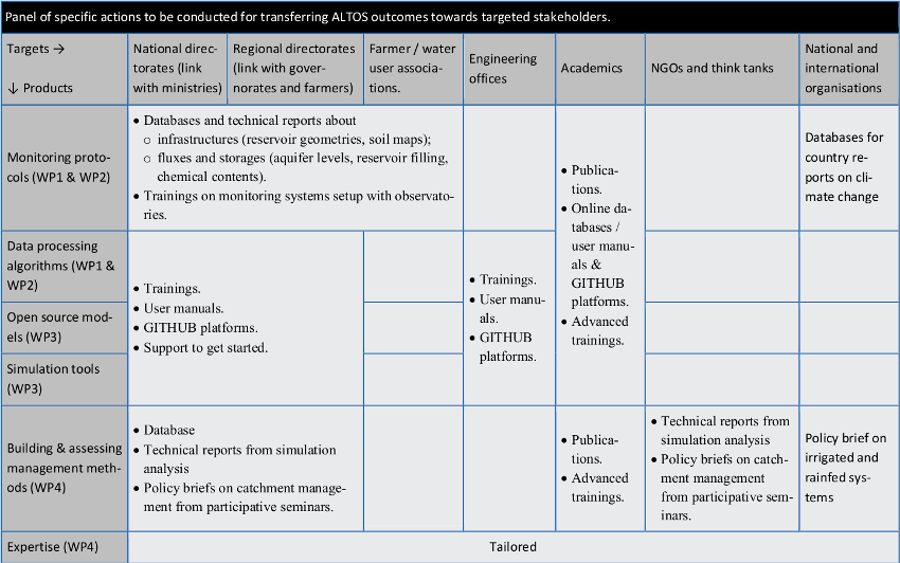Co-building and transfert
The ALTOS strategy for result dissemination and exploitation relies on :
- Community facilities (i.e., international laboratories, observatories, and modelling platforms)
- Open access to project results,
- Pro-active knowledge transfer to key target groups such as policy makers, academics and engineering offices
Through the community facilities, most of which include statutory user committees, the project benefits from historical collaborations with several stakeholders involved in policy making about water / soil conservation and agricultural development. These community facilities, which will continue beyond the end of the ALTOS project, also permit to ensure that measures are effectively implemented after the project.
The ALTOS project aims to advance scientific knowledge for improving water resource management within rainfed and irrigated agrosystems. Consequently, stakeholders involved in this thematic are the end-users of the project, and they are the key targets for dissemination / exploitation activities.

Seven main groups are identified, following instances in Table 2.2.
- National and regional directorates for agricultural development that are already involved in the community facilities in Tunisia (DG-RE, DG-BGTH, DG-PA, DG-ACTA and CRDA), in Morocco (ORMVAH, ABHT) and in Lebanon (Litani Authority).
- Farmer, water user association and NGOs in the field of rural development: GDAs and ADUTAR in Tunisia, Baalbeck NGO in Lebanon. The ALTOS project liaises with donors who support farmer associations and NGOs. Thus, it attends workshops organized by French Agency for Development who supports rural organizations and NGOs in Morocco, Tunisia and Lebanon.
- Engineering offices: NGI-MAGHREB, SCET Tunisia, ENVILYS.
- Think tanks: as indicated last May 10, at the opening of the second edition of the summit of African think tanks, Mediterranean countries pay particular attention to the development of think tanks as an integral component in the quest for sustainable development. Through IRD, ALTOS is connected with Institute for Sustainable Development and International Relations (IDDRI) and its Mediterranean program "Nature-based solutions in the Mediterranean region".
- Regional and international organisations: ALTOS is in line with the fourth priority of ICARDA (International Centre for Agricultural Research in the Dry Areas) 2017-2026 strategic plan "Develop innovative approaches to water, land, and soil resource management that address water scarcity, enhance soil health and productivity, and contribute to land degradation neutrality", and plans knowledge exchanges with ICARDA. Also, most partners of the ALTOS consortium work with an International Centre for Advanced Mediterranean Agronomic Studies (CIHEAM).
- Academics: scientific community and students: each ALTOS partner is affiliated with a university and is involved in training and student mobility.
Subsequently, the knowledge management strategy conducts a panel of specific actions to transfer the ALTOS results towards the targeted stakeholders. The panel of these specific actions includes
- online data delivery through existing information systems
- publications
- training sessions
- Methodological transfers though application programs, online dedicated hubs and user manuals
- Reports from participative seminars
- Policy briefs
This panel of specific actions is overviewed in Table below that highlights the main lines.
